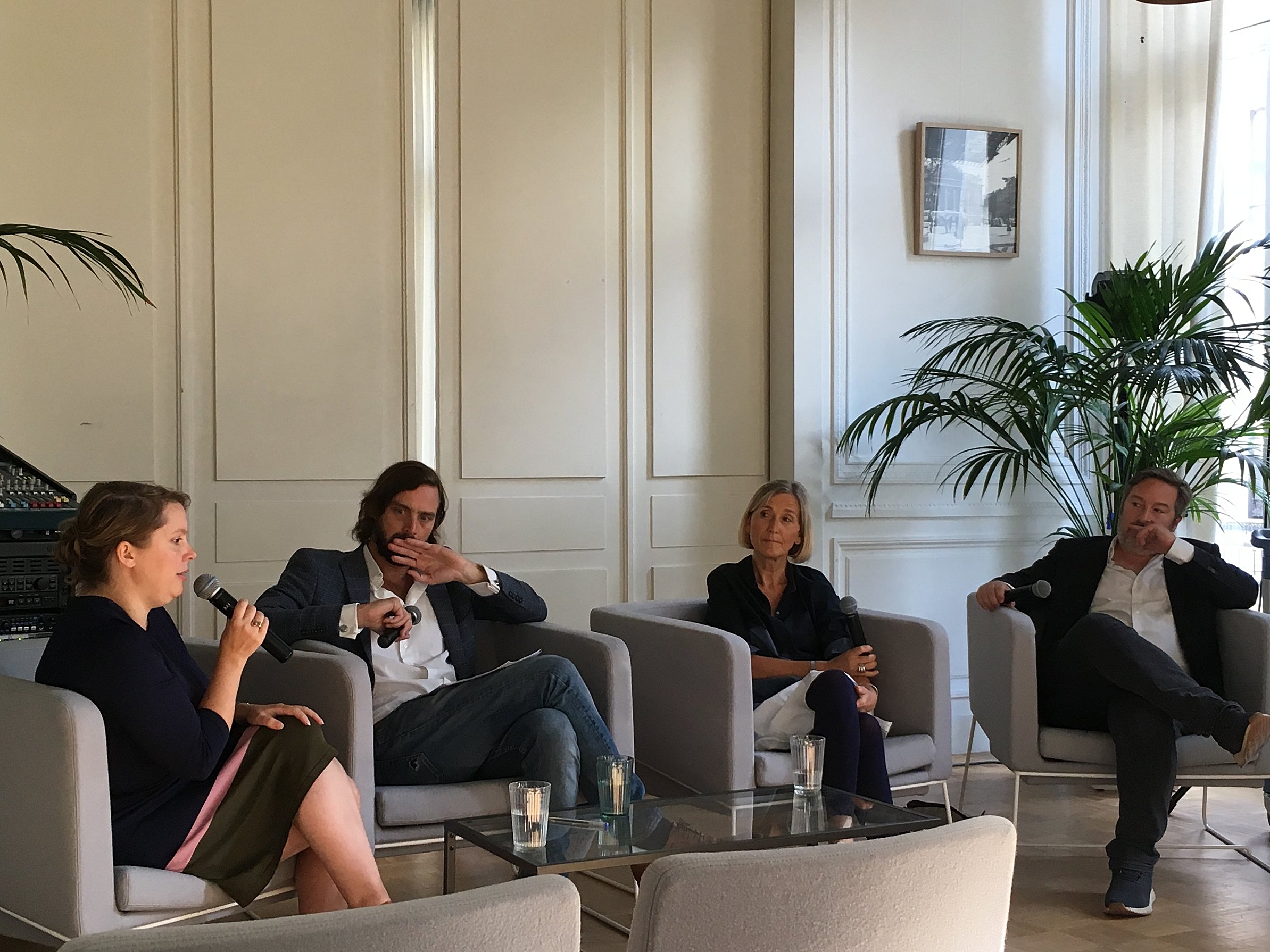Within the framework of Brussels Gallery Weekend I attended a talk staging a topic which is my topic at the moment of leaving my country to get to know whats going on here:
Booming Brussels . On the panel - Zoë Gray (curator at WIELS), Anne Vierstraete (Director of ART Brussels), and Harlan Levey (Galerist), moderated by the art critic Sam Steverleynck (second from left on the picture beneath).
- well, I´ve to confess that the thesis that a place is vibrant, developing and trendy with new discoverings on the artist´s heaven might be an assumption every minor city is stating mediawise during events like a gallery weekend. The director of an commercial art fair and a galerist on a panel also won’t make bad add for the locality for their businesses. Still, a perfect event for me to dive deeper into that question of why Brussels.
During the talk I heard several points and arguments which underline the growing importance and influence of Brussels as an important center of not only dance, performing arts, but also fine arts in the last 10 to 15 years like the geographical situation of the city, which makes it possible to easily work on projects in several countries, or the internationality also through its status as center of the EU, but the experts also formulated facts which I start to feel and understand gradually: in 1986 there has been no single museum dedicated to modern or contemporary art in town, then 11 galerist gathered together and started a kind of an alliance which in 1996 ended up in the Art Brussels. The most crucial point for the development into a more vidid not only commercial but also a off-scene, diversity of artists and institutions definitely has been the opening of WIELS Centre for contemporary Art about 10 years ago. Further, the diversity in this comparatively small city is huge; it’s easy to navigate. The speakers emphasised the high quality of life and the accessibility of people here seems to be unique, it´s easy to meet people as they are not snobby - certainly a fact that I till now can underline. Harlan Levey stated that all these are characteristics suited to art.
Zoë Gray, originally from Great Britain, reported something highly interesting: she has been working in The Netherlands for several years, with the shift towards right politics she experienced more and more hostility towards art and therefore moved to Brussels…
But they were also coming up with aspects I´ve not thought of so far. For instance the theory of the “absence of the state” - on the one hand an advantage, as you are free to produce and show more self-driven, but on the other hand sometimes certain financial and symbolic support is as well absent. The division of the Flemish and the Francophone is stated to be so strong that it leads to a division within the fields. One artist recently also told me that you kind of have to decide when you settle down in Brussels as an artist - do you want to work with the Flemish or the Francophone institutions … that seems to be a pity as exactly this diversity enriches this place and makes it so strong otherwise.
Altogether, it was a quite balanced and in depth talk - it raised several points which I want to check out further within the upcoming months.
*experiment*
It´s such an honour to be free to reflect and write about the fields I am working in for a period with an undefined aim. It´s kind of beaming myself out of the business and gain new insights. And, the most important aspect - I don´t restrict it to one field; Visual art might be crucial, but I am not less interested into performing art, theatre, experimental stuff, local projects with a smaller outreach and above all transcultural approaches … let´s see what I´ll discover.
For the whole blog of the brusselsARTproject click here.

